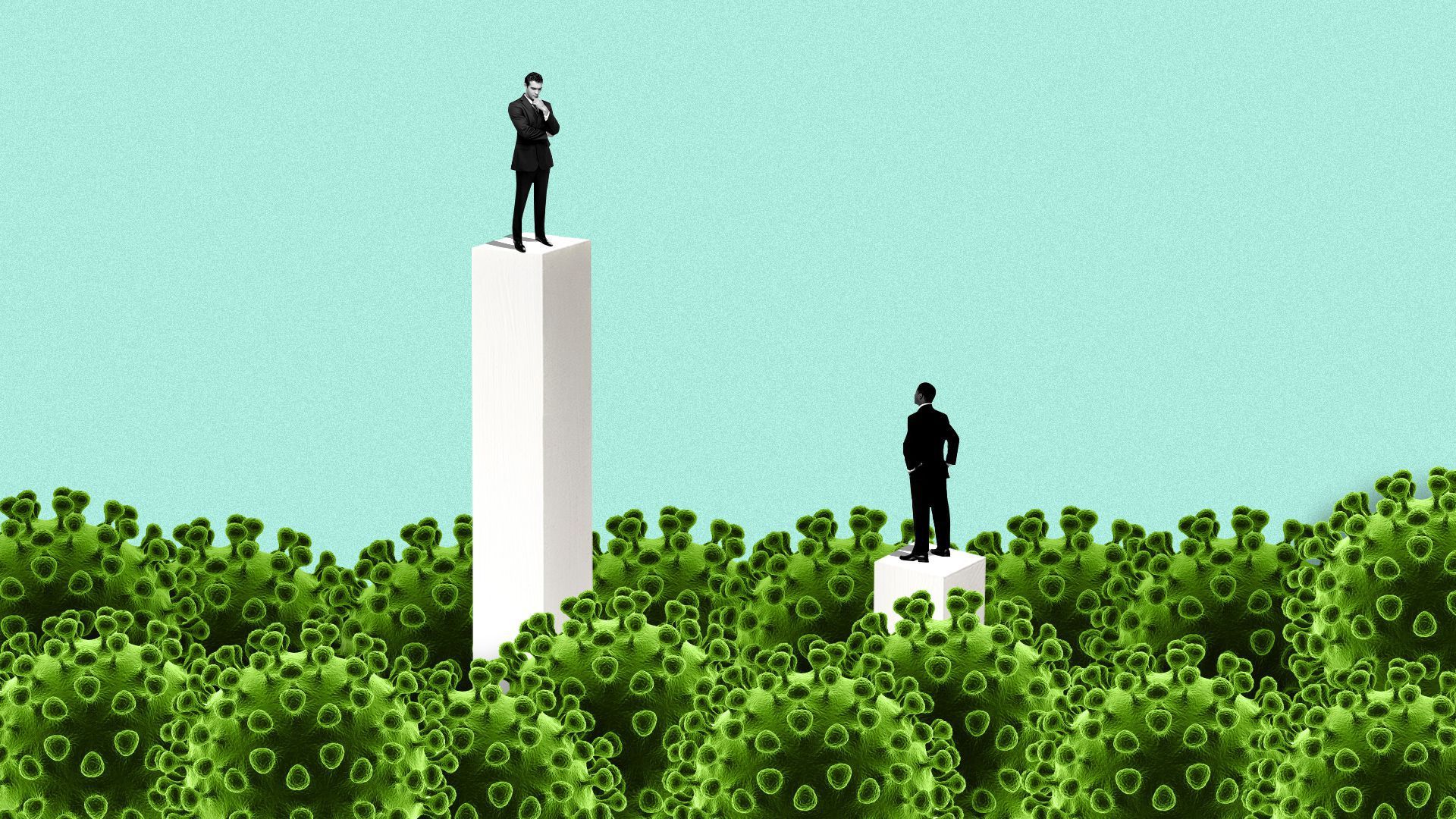America's gaping coronavirus inequality
Add Axios as your preferred source to
see more of our stories on Google.

Illustration: Aïda Amer/Axios
America is facing what feels like a Darwinian moment where the strong in business, wealth and health are more likely to survive, while many others will sadly wither.
Why it matters: The pandemic is exposing — and deepening — many of the nation's great divides.
- Many of the people who are disproportionately hurt by the virus have the least control over or say in the system.
- It’s predominantly the old — and the previously or already ill — who are getting hit the hardest.
- As we told you in last week's Deep Dive, it's exposed long-standing health care inequities and communities of color and low-income families are bearing the brunt.
- All week, we saw a stream of new data showing a shockingly disproportionate toll among African Americans.
But the imbalance transcends demographics:
- Those without health insurance are less likely to get tested or seek treatment, increasing their mortality rate.
- Those with weak governors or mayors, slow to react or stubborn to face reality, will suffer and die from belated social distancing and stay-at-home mandates.
- Those with strong health and immune systems are likelier to survive. Here, as in Italy, it is likely those who develop the strong antibody that defeats the virus will be first back to work and to return to normal life.
The Darwinian dynamic feels especially acute for business. Millions of companies and jobs will be wiped away, with mainly the strong — or well connected — able to hang on.
- Those companies with strong connections and lobbyists will get bailouts to stay alive.
- Those smaller businesses with good connections to banks will be first in line for government money to stay afloat.
- Those with strong balance sheets — and not inflated paper value or hype — will thrive and attract more emergency capital from investors.
- Those mom and pop shops with good local businesses but thin margins will struggle mightily and many will go under without substantial aid delivered quickly. The hourly workers who make them possible will suffer, too.
- Those workers who can easily transition to remote work will be fine. Those in blue collar jobs that can only be done in person are not only more vulnerable to the virus but also losing their jobs and insurance.
The bottom line: As with so much in American life, the coronavirus draws out the sharp divides between the nation's haves, and have nots, as who you are, who you know and where you live can make the difference in everything, including life and death.

